2016 Toyota Camry Repair, Service & Tires
Get Started
Complete Auto Care for Your 2016 Toyota Camry
-
TIRES FOR YOUR 2016 Toyota Camry View Tire Info GET TIRE PRICING
-
REPAIR FOR YOUR 2016 Toyota Camry View Repair Info SCHEDULE REPAIR
-
MAINTENANCE FOR YOUR 2016 Toyota Camry View Maintenance Info SCHEDULE MAINTENANCE
-
OFFERS FOR YOUR 2016 Toyota Camry Limited Time Tire Offers VIEW ALL COUPONS
2016 Toyota Camry Tires
Recommended Tires | Tire Information
2016 Toyota Camry Tires Sizes, Speed Ratings, and Inflation
Not sure about your 2016 Toyota Camry tire size? Use the following chart to find information on tire size, speed rating, and inflation.
| Trim Level | Speed Rating | Inflation in PSI F/R | Tire Size |
|---|---|---|---|
| 2016 Toyota Camry LE* | S | 35 PSI/35 PSI | P205/65R16 |
| 2016 Toyota Camry LE* | S | 35 PSI/35 PSI | P205/65R16 |
| 2016 Toyota Camry LE* | S | 35 PSI/35 PSI | P205/65R16 |
| 2016 Toyota Camry LE* | S | 35 PSI/35 PSI | P205/65R16 |
| 2016 Toyota Camry LE* | S | 35 PSI/35 PSI | P205/65R16 |
| 2016 Toyota Camry LE* | S | 35 PSI/35 PSI | P205/65R16 |
| 2016 Toyota Camry XLE* | V | 35 PSI/35 PSI | P215/55R17 |
| 2016 Toyota Camry XLE* | V | 35 PSI/35 PSI | P215/55R17 |
| 2016 Toyota Camry XLE* | V | 35 PSI/35 PSI | P215/55R17 |
| 2016 Toyota Camry XLE* | V | 35 PSI/35 PSI | P215/55R17 |
| 2016 Toyota Camry XLE* | V | 35 PSI/35 PSI | P215/55R17 |
| 2016 Toyota Camry XLE* | V | 35 PSI/35 PSI | P215/55R17 |
| 2016 Toyota Camry Hybrid SE* | V | 35 PSI/35 PSI | P215/55R17 |
| 2016 Toyota Camry Hybrid SE* | V | 35 PSI/35 PSI | P215/55R17 |
| 2016 Toyota Camry Hybrid SE* | V | 35 PSI/35 PSI | P215/55R17 |
| 2016 Toyota Camry Hybrid SE* | V | 35 PSI/35 PSI | P215/55R17 |
| 2016 Toyota Camry Hybrid SE* | V | 35 PSI/35 PSI | P215/55R17 |
| 2016 Toyota Camry Hybrid SE* | V | 35 PSI/35 PSI | P215/55R17 |
| 2016 Toyota Camry XSE* | V | 33 PSI/33 PSI | P225/45R18 |
| 2016 Toyota Camry XSE* | V | 33 PSI/33 PSI | P225/45R18 |
| 2016 Toyota Camry XSE* | V | 33 PSI/33 PSI | P225/45R18 |
| 2016 Toyota Camry XSE* | V | 33 PSI/33 PSI | P225/45R18 |
| 2016 Toyota Camry XSE* | V | 33 PSI/33 PSI | P225/45R18 |
| 2016 Toyota Camry XSE* | V | 33 PSI/33 PSI | P225/45R18 |
| 2016 Toyota Camry Hybrid XLE* | V | 35 PSI/35 PSI | P215/55R17 |
| 2016 Toyota Camry Hybrid XLE* | V | 35 PSI/35 PSI | P215/55R17 |
| 2016 Toyota Camry Hybrid XLE* | V | 35 PSI/35 PSI | P215/55R17 |
| 2016 Toyota Camry Hybrid XLE* | V | 35 PSI/35 PSI | P215/55R17 |
| 2016 Toyota Camry Hybrid XLE* | V | 35 PSI/35 PSI | P215/55R17 |
| 2016 Toyota Camry Hybrid XLE* | V | 35 PSI/35 PSI | P215/55R17 |
| 2016 Toyota Camry SE* | V | 35 PSI/35 PSI | P215/55R17 |
| 2016 Toyota Camry SE* | V | 35 PSI/35 PSI | P215/55R17 |
| 2016 Toyota Camry SE* | V | 35 PSI/35 PSI | P215/55R17 |
| 2016 Toyota Camry SE* | V | 35 PSI/35 PSI | P215/55R17 |
| 2016 Toyota Camry SE* | V | 35 PSI/35 PSI | P215/55R17 |
| 2016 Toyota Camry SE* | V | 35 PSI/35 PSI | P215/55R17 |
| 2016 Toyota Camry Special Edition* | V | 33 PSI/33 PSI | P225/45R18 |
| 2016 Toyota Camry Special Edition* | V | 33 PSI/33 PSI | P225/45R18 |
| 2016 Toyota Camry Special Edition* | V | 33 PSI/33 PSI | P225/45R18 |
| 2016 Toyota Camry Special Edition* | V | 33 PSI/33 PSI | P225/45R18 |
| 2016 Toyota Camry Special Edition* | V | 33 PSI/33 PSI | P225/45R18 |
| 2016 Toyota Camry Special Edition* | V | 33 PSI/33 PSI | P225/45R18 |
| 2016 Toyota Camry Hybrid LE* | S | 35 PSI/35 PSI | P205/65R16 |
| 2016 Toyota Camry Hybrid LE* | S | 35 PSI/35 PSI | P205/65R16 |
| 2016 Toyota Camry Hybrid LE* | S | 35 PSI/35 PSI | P205/65R16 |
| 2016 Toyota Camry Hybrid LE* | S | 35 PSI/35 PSI | P205/65R16 |
| 2016 Toyota Camry Hybrid LE* | S | 35 PSI/35 PSI | P205/65R16 |
| 2016 Toyota Camry Hybrid LE* | S | 35 PSI/35 PSI | P205/65R16 |
|
2016 Toyota Camry LE* Speed Rating: S Inflation F/R: 35 PSI/35 PSI |
|
2016 Toyota Camry LE* Speed Rating: S Inflation F/R: 35 PSI/35 PSI |
|
2016 Toyota Camry LE* Speed Rating: S Inflation F/R: 35 PSI/35 PSI |
|
2016 Toyota Camry LE* Speed Rating: S Inflation F/R: 35 PSI/35 PSI |
|
2016 Toyota Camry LE* Speed Rating: S Inflation F/R: 35 PSI/35 PSI |
|
2016 Toyota Camry LE* Speed Rating: S Inflation F/R: 35 PSI/35 PSI |
|
2016 Toyota Camry XLE* Speed Rating: V Inflation F/R: 35 PSI/35 PSI |
|
2016 Toyota Camry XLE* Speed Rating: V Inflation F/R: 35 PSI/35 PSI |
|
2016 Toyota Camry XLE* Speed Rating: V Inflation F/R: 35 PSI/35 PSI |
|
2016 Toyota Camry XLE* Speed Rating: V Inflation F/R: 35 PSI/35 PSI |
|
2016 Toyota Camry XLE* Speed Rating: V Inflation F/R: 35 PSI/35 PSI |
|
2016 Toyota Camry XLE* Speed Rating: V Inflation F/R: 35 PSI/35 PSI |
|
2016 Toyota Camry Hybrid SE* Speed Rating: V Inflation F/R: 35 PSI/35 PSI |
|
2016 Toyota Camry Hybrid SE* Speed Rating: V Inflation F/R: 35 PSI/35 PSI |
|
2016 Toyota Camry Hybrid SE* Speed Rating: V Inflation F/R: 35 PSI/35 PSI |
|
2016 Toyota Camry Hybrid SE* Speed Rating: V Inflation F/R: 35 PSI/35 PSI |
|
2016 Toyota Camry Hybrid SE* Speed Rating: V Inflation F/R: 35 PSI/35 PSI |
|
2016 Toyota Camry Hybrid SE* Speed Rating: V Inflation F/R: 35 PSI/35 PSI |
|
2016 Toyota Camry XSE* Speed Rating: V Inflation F/R: 33 PSI/33 PSI |
|
2016 Toyota Camry XSE* Speed Rating: V Inflation F/R: 33 PSI/33 PSI |
|
2016 Toyota Camry XSE* Speed Rating: V Inflation F/R: 33 PSI/33 PSI |
|
2016 Toyota Camry XSE* Speed Rating: V Inflation F/R: 33 PSI/33 PSI |
|
2016 Toyota Camry XSE* Speed Rating: V Inflation F/R: 33 PSI/33 PSI |
|
2016 Toyota Camry XSE* Speed Rating: V Inflation F/R: 33 PSI/33 PSI |
|
2016 Toyota Camry Hybrid XLE* Speed Rating: V Inflation F/R: 35 PSI/35 PSI |
|
2016 Toyota Camry Hybrid XLE* Speed Rating: V Inflation F/R: 35 PSI/35 PSI |
|
2016 Toyota Camry Hybrid XLE* Speed Rating: V Inflation F/R: 35 PSI/35 PSI |
|
2016 Toyota Camry Hybrid XLE* Speed Rating: V Inflation F/R: 35 PSI/35 PSI |
|
2016 Toyota Camry Hybrid XLE* Speed Rating: V Inflation F/R: 35 PSI/35 PSI |
|
2016 Toyota Camry Hybrid XLE* Speed Rating: V Inflation F/R: 35 PSI/35 PSI |
|
2016 Toyota Camry SE* Speed Rating: V Inflation F/R: 35 PSI/35 PSI |
|
2016 Toyota Camry SE* Speed Rating: V Inflation F/R: 35 PSI/35 PSI |
|
2016 Toyota Camry SE* Speed Rating: V Inflation F/R: 35 PSI/35 PSI |
|
2016 Toyota Camry SE* Speed Rating: V Inflation F/R: 35 PSI/35 PSI |
|
2016 Toyota Camry SE* Speed Rating: V Inflation F/R: 35 PSI/35 PSI |
|
2016 Toyota Camry SE* Speed Rating: V Inflation F/R: 35 PSI/35 PSI |
|
2016 Toyota Camry Special Edition* Speed Rating: V Inflation F/R: 33 PSI/33 PSI |
|
2016 Toyota Camry Special Edition* Speed Rating: V Inflation F/R: 33 PSI/33 PSI |
|
2016 Toyota Camry Special Edition* Speed Rating: V Inflation F/R: 33 PSI/33 PSI |
|
2016 Toyota Camry Special Edition* Speed Rating: V Inflation F/R: 33 PSI/33 PSI |
|
2016 Toyota Camry Special Edition* Speed Rating: V Inflation F/R: 33 PSI/33 PSI |
|
2016 Toyota Camry Special Edition* Speed Rating: V Inflation F/R: 33 PSI/33 PSI |
|
2016 Toyota Camry Hybrid LE* Speed Rating: S Inflation F/R: 35 PSI/35 PSI |
|
2016 Toyota Camry Hybrid LE* Speed Rating: S Inflation F/R: 35 PSI/35 PSI |
|
2016 Toyota Camry Hybrid LE* Speed Rating: S Inflation F/R: 35 PSI/35 PSI |
|
2016 Toyota Camry Hybrid LE* Speed Rating: S Inflation F/R: 35 PSI/35 PSI |
|
2016 Toyota Camry Hybrid LE* Speed Rating: S Inflation F/R: 35 PSI/35 PSI |
|
2016 Toyota Camry Hybrid LE* Speed Rating: S Inflation F/R: 35 PSI/35 PSI |
* Note: these models have different tire sizes depending on vehicle options.
Recommended Tires for Your 2016 Toyota Camry
What tires are best for a 2016 Toyota Camry? Check out the following tire brands and types.
 Blizzak WS90
Blizzak WS90
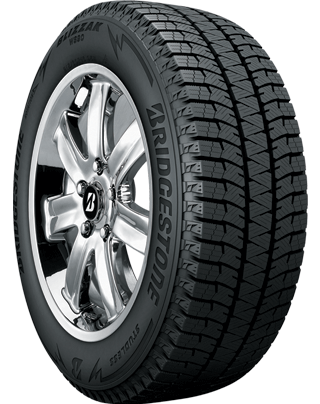
- No warranty
- Winter
- Winter
 Blizzak LM-32
Blizzak LM-32
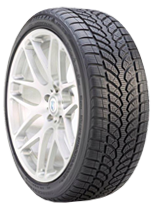
- Platinum Pact Limited Warranty
- Winter
- Winter
 DriveGuard Plus
DriveGuard Plus
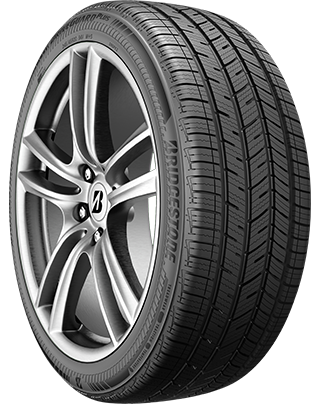
- Platinum Pact Limited Warranty
- All-Season
- Performance
 Ecopia EP422 Plus
Ecopia EP422 Plus
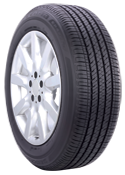
- Platinum Pact Limited Warranty
- All-Season
- Performance
 Turanza QUIETTRACK
Turanza QUIETTRACK
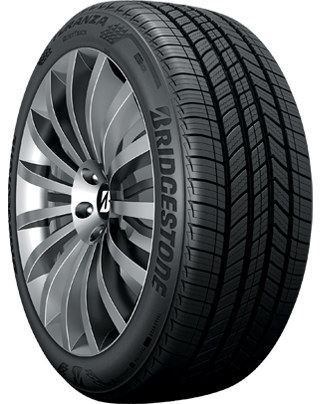
- No warranty
- All-Season
- Performance
 Turanza T005
Turanza T005
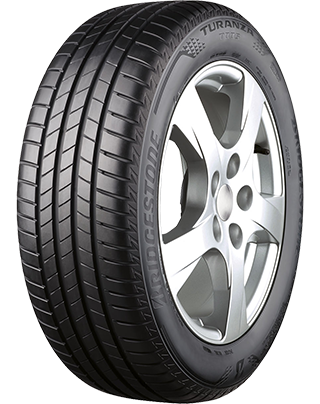
- No warranty
- Summer
- Performance
 Potenza RE71RS
Potenza RE71RS
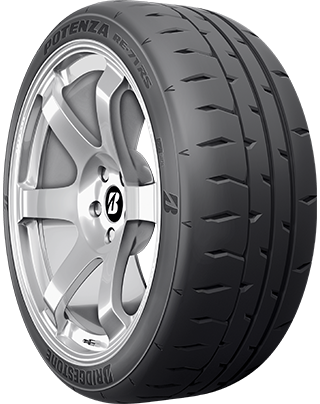
- No warranty
- Summer
- Performance
 WEATHERPEAK
WEATHERPEAK
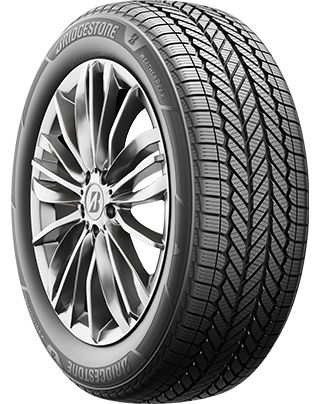
- Platinum Pact Limited Warranty
- All-Season
- Passenger Tires
 Potenza Sport AS
Potenza Sport AS
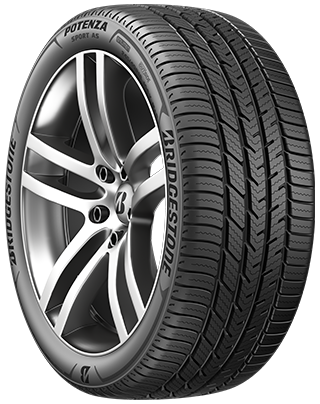
- Platinum Pact Limited Warranty
- All-Season
- Performance
 Potenza Sport
Potenza Sport
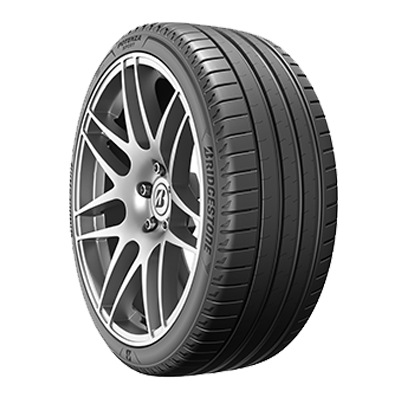
- Platinum Pact Limited Warranty
- Summer
- Performance
 Turanza LS100
Turanza LS100
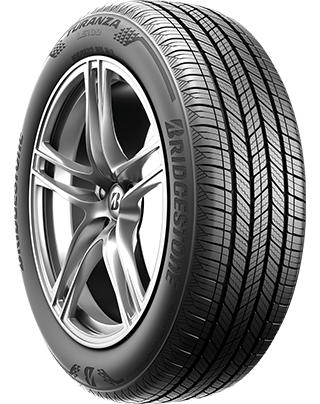
- Platinum Pact Limited Warranty
- All-Season
- Performance
 Turanza T005A
Turanza T005A
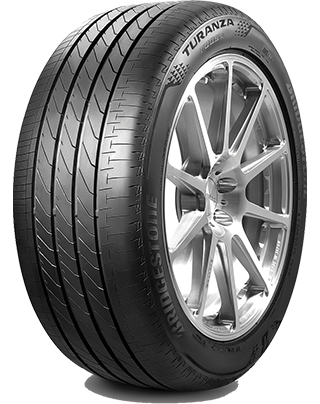
- No warranty
- Summer
- Performance
 Affinity Touring S4 FF
Affinity Touring S4 FF
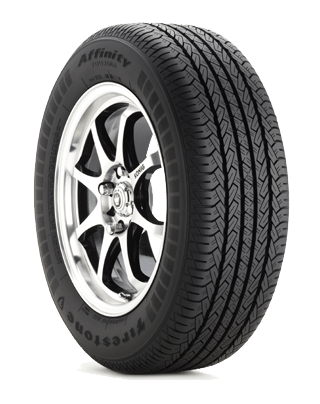
- Gold Pledge Limited Warranty
- All-Season
- Passenger Tires
 ALL SEASON
ALL SEASON

- No warranty
- All-Season
- Passenger Tires
 FT140
FT140
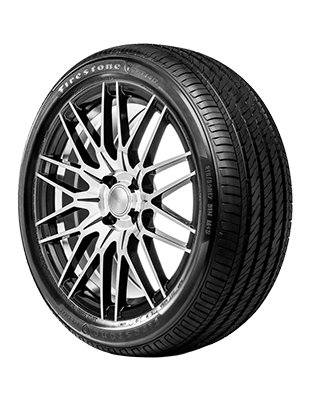
- No warranty
- All-Season
- Passenger Tires
 WEATHERGRIP
WEATHERGRIP
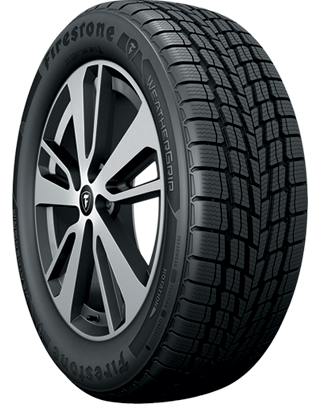
- No warranty
- All-Season
- Passenger Tires
 Firehawk AS V2
Firehawk AS V2
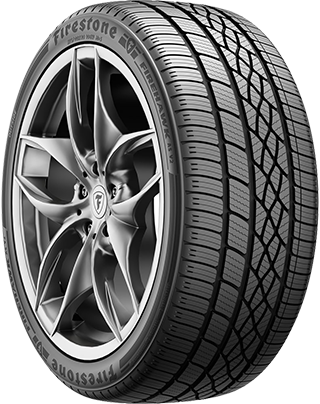
- No warranty
- All-Season
- Performance
 Firehawk Indy 500
Firehawk Indy 500
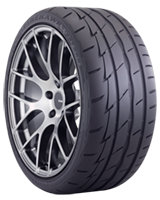
- Gold Pledge Limited Warranty
- Summer
- Performance
 Winterforce 2
Winterforce 2
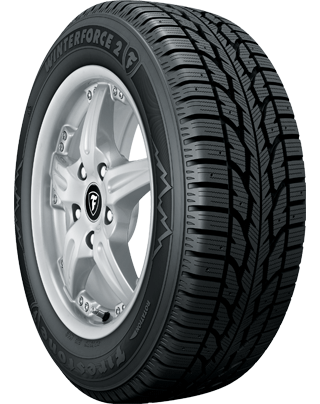
- No warranty
- Winter
- Winter

- No warranty
- All-Season
- Passenger Tires

- No warranty
- All-Season
- Passenger Tires

- No warranty
- All-Season
- Performance
 Extensa A/S II
Extensa A/S II

- No warranty
- All-Season
- Passenger Tires
 PROXES Sport
PROXES Sport
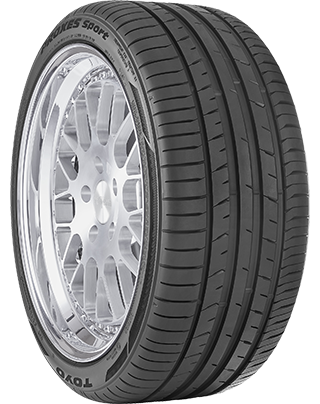
- No warranty
- Summer
- Performance
 PROXES Sport A/S
PROXES Sport A/S
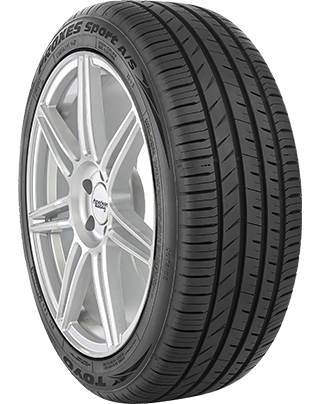
- No warranty
- All-Season
- Performance
Choosing 2016 Toyota Camry Tires
Other than getting the proper tire size, you also want to consider a handful of other factors when buying new Toyota Camry tires like how and where you drive, and how much you want to spend. Think about where you live (countryside vs. city vs. mountains) and the kind of unexpected weather you're likely to experience when evaluating your driving conditions. Many drivers who live in states that experience all four seasons choose to purchase two sets of tires: one set for winter, one set for summer. Other drivers buy one set of all-season tires instead. That way they don't have to return to the tire shop and their vehicle is always ready for sun, rain, and light snow!
Driving style is next on the list to think about when buying tires. If you're a diehard off-roader, you have very different tire needs than a highway commuter who doesn't leave the paved path. Browse Toyota Camry tires online or come to your nearby Firestone Complete Auto Care for help selecting the tire that's right for you.
Toyota Camry Installation and More
Firestone Complete Auto Care has been a leading tire provider for more than a century. We're your one-stop shop for tire installation, rotation, and ongoing maintenance! Buy 2016 Toyota Camry tires online and schedule your installation when it's convenient for you.
2016 Toyota Camry Tire Q&A
-
Why check Toyota tire inflation? Even a tiny decrease in tire pressure could impact your safety and fuel economy. Maintaining proper tire pressure can help increase fuel economy, improve braking time, and boost tire lifespan.
-
Why are there numbers on the side of my Toyota Camry tires? The numbers on your tire sidewall give you information about tire speed rating, traction, treadwear, tire size, and load carrying capacity. Chat with a tire technician to learn how to read the numbers on your Toyota tires!
-
How do I check the tread depth on my Toyota tires? Stay on top of your tire tread depth to help avoid a dangerous drive. You can check tread depth with a penny. Hold the penny so that Abraham Lincoln is facing you, then place your penny into a tread groove upside down. If you can see the top of Abe’s head, your tread is shallow and it might be time for new Toyota Camry tires. Grab a penny. Hold the so that Abe Lincon's head is facing you and his hair is pointing toward the ground. Then, place the penny into a tread groove. If you can see the top of Abe’s head, your tread is shallow and it might be time for new Toyota Camry tires.
Types of 2016 Toyota Camry Repairs
How do I learn more about auto repairs? Click on a service below to read about the types of Toyota Camry repairs we do at Firestone Complete Auto Care.
2016 Toyota Camry Repair Information
No driver looks forward to car repairs. But we work to provide you with a different experience at Firestone Complete Auto Care. Bring your 2016 Toyota Camry in for repair services and our skilled repair technicians will get your Camry back on the road. We'll work to evaluate the scope of repairs needed and explain your options. We value your trust, so we recommend only the repairs we think are necessary for your safety on the road.
How Much Are Toyota Camry Repairs?
The cost to repair your 2016 Toyota Camry depends on the type of repair, the cost of any replacement parts, the amount of labor necessary to get the job done, and the state you live in. They're updated regularly!
A few different aspects can influence repair costs for your 2016 Toyota Camry, like
2016 Toyota Camry Auto Repair Questions
-
Can scheduled maintenance help me avoid repairs? One of the best ways to prevent 2016 Toyota Camry repairs is by staying on top of your Toyota maintenance schedule. This schedule is written by the people who made your vehicle and they know best how to keep it running smoothly.
-
What's wrong if something feels 'off' in my Toyota? You know your vehicle. You also know when something feels 'off' with your vehicle. Pay attention when things don't run like they used to and stop by for a Courtesy Check when you notice an unusual sign, smell, or sensation. We might be able to help you prevent Toyota Camry repairs!
-
Do I have to get the repairs you recommend for my Toyota? We won’t recommend a service or repair for your 2016 Toyota Camry unless we think it’s necessary to keep you safe. Want to know more about a specific recommended repair? Ask! We’re here to help.
Get Your 2016 Toyota Camry Brakes Fixed
Your Toyota Camry may be powered by a strong engine. But if you can't stop it, then it's scrap metal. If you’re experiencing squeaky brakes or a loss of braking power, don’t wait! Safe driving and responsive brakes go hand in hand. Plus, ignoring your brake problems can result in more damage and higher brake repair bills. Go to your local Firestone Complete Auto Care for 2016 Toyota Camry brake repairs. We offer a variety of brake services like brake pad/shoe removal and replacement, rotor/drum resurfacing, brake fluid exchange, and brake caliper and wheel cylinder installation.
Toyota Camry Brakes Frequently Asked Questions
-
Why is my Camry shaking as I brake? Faulty brake calipers, worn brake pads or rotors, loose or worn suspension parts, and warped rotors can cause your Camry to shake during braking. If you’re experiencing odd brake behavior, schedule a free brake inspection at a nearby Firestone Complete Auto Care.
-
How long can I expect my Camry brake pads to last? In general, brake pads can last from 30,000 to 40,000 miles. Certain factors, like driving on highways mostly and braking smoothly, can help your brake pads last longer. Hauling heavy loads and riding your brakes can shorten brake pad lifespan.
-
Should my Camry be leaking brake fluid when the car is off? Your Camry brake system is a closed hydraulic system, which means that the brake fluid should not leak out of the system under normal circumstances. However, over time, the various components of the brake system can wear out or become damaged, which can cause brake fluid to leak out of the system.
Repairing Your Toyota Camry Drivetrain
Drivetrains for front, rear, and all-wheel-drive and 4WD vehicles are not all the same. You don't want to go to any random shop for drivetrain repair. You want to go to Firestone Complete Auto Care. We can help repair all of your 2016 Toyota Camry drivetrain components Your Camry might need driveshaft repair if you notice clunks when shifting, vibration as your vehicle accelerates, resistance when turning, or heavy vibrations in your floorboards.
2016 Toyota Camry Drivetrain Q&A
-
How do I know if my Toyota drivetrain is damaged? Noises toward the back of your Toyota Camry, leaking fluid, trouble turning — these could all be signs of drivetrain damage you want to address. Take action before something more severe happens.
-
What causes a Camry’s malfunction indicator light (MIL) to illuminate? If your Camry has its malfunction warning light (more commonly called the check engine light) illuminated, it could indicate engine troubles, problems with the transmission, electrical issues, malfunctioning sensors, connector problems, or misfire issues.
-
How worried should I be about a drivetrain malfunction in my Camry? A drivetrain malfunction in your Camry should never be taken lightly. Driving with a malfunctioning drivetrain can put you in danger and lead to further vehicle damage, so it's essential to have a qualified mechanic assess and repair the problem as soon as possible.
2016 Toyota Camry Wheel Alignment
With an alignment service, adjustments are made to your Toyota Camry’s suspension system, the connection between the vehicle and the wheels. During the service, calculated changes are made to the angles of your tires. This is so that your tires hit the road at an optimal angle for your vehicle’s performance — just as Toyota intended. Before we adjust the alignment of your 2016 Toyota Camry, we’ll start by checking the current alignment angles. If needed, we'll adjust your wheel alignment angles to match Toyota recommendations.
Toyota Camry Alignment Questions
-
How can I avoid knocking my Toyota Camry out of alignment? Hitting a pothole or curb can alter your wheel alignment. So can general wear and tear over time.
-
How frequently should you get a wheel alignment for your Camry? Typically, your alignment should be checked every 6,000 miles or 6 months, whichever comes first. Double-check your Camry owner’s manual for Toyota's exact recommended schedule.
-
Do you need to get your Camry wheels aligned? It’s not mandatory to get an alignment after installing new tires on your Camry, but it can be a smart decision! Proper alignment from the jump can help improve handling, fuel efficiency, and tire wear.
2016 Toyota Camry Engine Services
If your 2016 Toyota Camry needs engine repair, our technicians will make sure you understand what’s going on before they start working on your engine. We make recommendations, but you make the final decision. If a repair can wait, we'll let you know. But if immediate repairs are necessary for your safety, we’ll make sure that's clear, too. We want to give you all the details you need to make an informed decision about your engine repairs. By choosing Firestone Complete Auto Care for Camry engine repairs and you can feel confident knowing that we use Toyota-approved parts and components like the cambelt, oil gasket, fuses, or other parts.
2016 Toyota Camry Engine Q&A
-
Why does the check engine light in my Camry turn on when I start my car? It's okay if your check engine light comes on when you first start your vehicle. This is a sign that your vehicle is testing its circuits. The light should go off shortly. Bring your vehicle in if it doesn't.
-
Why is my Toyota Camry making engine noise? Strange engine sounds can be a sign something’s off in your Toyota Camry. Knocking or tapping could be a symptom of low oil. A high-pitched whistle could signal an intake leak or misaligned belt. Squealing can be traced back to a loose fan belt, and grinding might be a sign of brake problems rather than engine issues.
-
What could damage my Toyota Camry engine? Some driving habits are not so great for your engine. These include driving on a near-empty gas tank, flooring the gas pedal while the car is in Park, or accelerating too quickly, too soon. Protect your engine’s performance and efficiency by distancing yourself from these habits.
Tire Repair for Your 2016 Toyota Camry
If the road has been rough on your 2016 Toyota Camry tires, Firestone Complete Auto Care can help. Our tire technicians can determine whether it's safe to plug and patch the tire, or whether it needs to be replaced. We'll start by evaluating the state of wear, the location of damage, type of damage, and the size of the damage.
If a repair on your 2016 Toyota Camry tire is feasible and safe, we’ll get to work on the steps to fix it: (1) Remove the tire from the wheel for inspection and repair, (2) use a filler to close up the puncture (this is to keep moisture from getting in), and (3) secure and seal the inner tire liner to ensure the tire is airtight.
Your Questions About Toyota Camry Tire Repair, Answered
-
What happens if I drive my Toyota on a flat tire? Driving on a flat tire is not a good idea. Your Camry engine will keep running with a flat tire, but you could damage your wheel by continuing to drive on a flat.
-
Is temporary sealant bad for my Toyota's tires? Temporary sealants will solve your problem… for a little bit. If you’ve seen temporary or emergency tire sealant before (it usually comes in a can), it can be tempting to turn to this as a solution for your flat tire. Keep in mind that these fixes could buy you some time to get to Firestone Complete Auto Care for a proper repair, but they could also cause some harm in the process (for example, damage to your TPMS). Plus, using a product like this could void your tire warranty.
-
What can cause Camry tires to keep losing air? Tire punctures, damaged wheels, and leaking valve stems are possible reasons for your Camry tires continuously losing air.
Maintenance for Your 2016 Toyota Camry
You want your Toyota Camry to last as long as possible. If you put in the effort to keep up with proper maintenance, you could hit 200,000 miles (or beyond!) in your Camry.
2016 Toyota Camry Maintenance Schedule
What is the manufacturer recommended maintenance schedule for a 2016 Toyota Camry? Find maintenance info for your vehicle.
Guide to 2016 Toyota Camry Scheduled Maintenance
There's no need to guess when it's time to get Camry maintenance, and no need to wait until something goes wrong. Rely on the recommended maintenance schedule that’s been created just for your 2016 Toyota Camry! The recommended maintenance schedule is put together by Toyota, your vehicle manufacturer. Driving conditions, climate variations, and other variables can affect which scheduled maintenance services you’ll need; however, there’s a good chance that your vehicle’s recommended maintenance services will include fluid exchanges, filter changes, new brake pads, oil changes, and tire rotations. Keeping up with routine service appointments is a great way to keep your Camry running for longer, increase your vehicle safety, and prevent common 2016 Toyota Camry problems.
Overview of Essential Toyota Camry Maintenance Needs
Come to Firestone Complete Auto Care for manufacturer-recommended routine maintenance on your 2016 Toyota Camry and an expert technician will begin by performing a Courtesy Check. A Courtesy Check helps "set the stage" for your service and catch any small problems before they turn into big repairs. Each Courtesy Check includes a free battery test and an inspection of your Camry's windshield wiper blades, head and tail lights, filters, fluid levels, tires, and alignment.
Firestone Complete Auto Care is your one-stop shop for 2016 Toyota Camry maintenance and repairs. So visit us regularly, or visit us urgently. Many locations are open on weekends and in the evening.
Questions About 2016 Toyota Camry Maintenance
-
When should I have Toyota Camry alignment checked? Watch out for pothole damage. If your 2016 Camry is pulling to one side or the other, your tires or suspension system could be calling out for help.
-
When does my Toyota Camry need high mileage oil? Do you have more than 75,000 miles on your Toyota Camry? If so, request to switch to high mileage oil at your next oil change. This type of oil is specially formulated to keep aging engine parts in the best possible condition.
-
Why are my Toyota dashboard lights on? It's better to get them addressed as soon as possible. An illuminated dashboard light means something in your vehicle isn't functioning like it should. Letting problems linger can mean bad news for your Toyota Camry, so be sure to take your car in for service as soon as you notice an illuminated dashboard light.
The Right Battery Size for a 2016 Toyota Camry
Not sure what battery to get for your Toyota Camry?
| Battery | Engine | Warranty | Cold Cranking Amps | |
|---|---|---|---|---|
| 24F-3 | L4/2.5L | Replacement 24 months | Performance months | 650 |
| 24F-3 | L4/2.5L | Replacement 24 months | Performance months | 650 |
| 24F-6 | L4/2.5L | Replacement 36 months | Performance months | 750 |
| 24F-6 | L4/2.5L | Replacement 36 months | Performance months | 750 |
| 24F-RP | L4/2.5L | Replacement 48 months | Performance months | 750 |
| 24F-RP | L4/2.5L | Replacement 48 months | Performance months | 750 |
| 24F-3 | L4/2.5L | Replacement 24 months | Performance months | 650 |
| 24F-3 | L4/2.5L | Replacement 24 months | Performance months | 650 |
| 24F-6 | L4/2.5L | Replacement 36 months | Performance months | 750 |
| 24F-6 | L4/2.5L | Replacement 36 months | Performance months | 750 |
| 24F-RP | L4/2.5L | Replacement 48 months | Performance months | 750 |
| 24F-RP | L4/2.5L | Replacement 48 months | Performance months | 750 |
| 24F-3 | V6/3.5L | Replacement 24 months | Performance months | 650 |
| 24F-3 | V6/3.5L | Replacement 24 months | Performance months | 650 |
| 35-2 | V6/3.5L | Replacement 36 months | Performance months | 640 |
| 35-2 | V6/3.5L | Replacement 36 months | Performance months | 640 |
| 24F-RP | V6/3.5L | Replacement 48 months | Performance months | 750 |
| 24F-RP | V6/3.5L | Replacement 48 months | Performance months | 750 |
| 24F-3 | V6/3.5L | Replacement 24 months | Performance months | 650 |
| 24F-3 | V6/3.5L | Replacement 24 months | Performance months | 650 |
| 35-2 | V6/3.5L | Replacement 36 months | Performance months | 640 |
| 35-2 | V6/3.5L | Replacement 36 months | Performance months | 640 |
| 24F-RP | V6/3.5L | Replacement 48 months | Performance months | 750 |
| 24F-RP | V6/3.5L | Replacement 48 months | Performance months | 750 |
| 24F-3 | L4/2.5L | Replacement 24 months | Performance months | 650 |
| 24F-3 | L4/2.5L | Replacement 24 months | Performance months | 650 |
| 24F-6 | L4/2.5L | Replacement 36 months | Performance months | 750 |
| 24F-6 | L4/2.5L | Replacement 36 months | Performance months | 750 |
| 24F-RP | L4/2.5L | Replacement 48 months | Performance months | 750 |
| 24F-RP | L4/2.5L | Replacement 48 months | Performance months | 750 |
| 24F-3 | V6/3.5L | Replacement 24 months | Performance months | 650 |
| 24F-3 | V6/3.5L | Replacement 24 months | Performance months | 650 |
| 35-2 | V6/3.5L | Replacement 36 months | Performance months | 640 |
| 35-2 | V6/3.5L | Replacement 36 months | Performance months | 640 |
| 24F-RP | V6/3.5L | Replacement 48 months | Performance months | 750 |
| 24F-RP | V6/3.5L | Replacement 48 months | Performance months | 750 |
Car Batteries for 2016 Toyota Camry
The average car battery lasts three to five years. Don’t get stranded by your Camry’s car battery. Replace it regularly instead! Pay attention to clues that your battery is on its way out. A sluggish engine start, an illuminated battery or check engine light, bloated battery case, corroded battery terminals, or weak lights can all be signs that your battery is waving goodbye.
Plus, at Firestone Complete Auto Care, we’ll test your battery for free. Drop in for a free battery check and, if necessary, a battery replacement to help keep your 2016 Toyota Camry running! Car batteries are one of our many specialties! Our technicians are familiar with Toyota-specific recommendations for Camry battery cold cranking amps and reserve capacity. Get help choosing the battery size that's best for your Camry, and schedule a fast car battery replacement at your earliest convenience.
Commonly Asked Toyota Camry Battery Questions
-
Why won't my Toyota Camry battery stay charged? A battery is in its final hour when it will no longer hold a charge. The battery may be too old. Or, you may have been leaving your car doors ajar and the cabin light at night. Stop by for a complimentary battery check at your favorite Firestone Complete Auto Care and get a handle on your car battery’s health.
-
How long do car batteries last? Car battery lifespan varies depending on a few factors, including driving conditions, accessories, how well it’s maintained, and the type of battery. On average, a car battery lasts about three to five years.
-
Why is there white, flaky stuff around my Camry’s battery post? The white, flaky stuff that can build up around your Camry’s battery terminals is known as corrosion. Acid leaking from your vehicle’s battery post can have a chemical reaction with the air, leading to an accumulation of the white, powdery substance over time. Corrosion can affect the flow of electricity between your battery and the electrical system in your Camry, possibly causing issues with electrical performance and starting. If left unaddressed for long enough, it may even cause your battery to prematurely fail.
Oil Changes for 2016 Toyota Camry
Toyota recommends changing your 2016 Camry’s oil at regular intervals. Your Camry may need an oil change right away if your check engine/oil change light is on, you hear knocking sounds coming from the engine, smell oil inside the vehicle, or notice an unusual amount of exhaust. You may also need an oil change more frequently than Toyota recommends if you haul heavy loads, drive in dusty areas, adventure off-road, or go at low speeds on long distance trips.
Your local Firestone Complete Auto Care has the right 2016 Toyota Camry motor oil: either synthetic or conventional. Check your owner's manual and talk with a technician to select the right Toyota Camry oil, whether it's Quaker State® Advanced Durability™ conventional oil, Pennzoil® High Mileage Vehicle® motor oil, Pennzoil Platinum® Full Synthetic motor oil with PurePlus™ Technology, or Shell Rotella® heavy-duty engine oil. During an oil change, one of our techs will change your Camry’s oil, replace and recycle your used oil and oil filter, check all of your other filters, refill vital car fluids, and perform a courtesy inspection on your entire vehicle. Let the experts take care of your Camry’s engine by making an oil change appointment today.
2016 Toyota Camry Oil Change Q&A
-
What can cause the oil light on my Toyota Camry to illuminate? Your Toyota Camry oil change reminder light might illuminate if it’s been too long since your last oil change. On the other hand, the oil pressure light might illuminate due to a clogged oil filter, a faulty oil pressure sensor, low engine oil levels, or a malfunctioning oil pump.
-
Can I change my Toyota Camry oil at home? Changing engine oil at home isn’t as simple as it’s made out to be. You’ll have to figure out how to properly dispose of the oil and buy special tools. Having your oil changed professionally can not only reduce the risk of something going wrong during the service, but it’ll also help your car perform smoothly down the road.
-
Why is my Toyota exhaust smoke gray or blue? Your engine could be burning oil due to a leak. It may be time for a pro to take a look. A leak can be caused by a variety of issues including faulty valve seals, blown piston rings, or damaged cylinder walls.
Engine Tune-Up Service for Your 2016 Toyota Camry
Periodic tune-ups can bring more power back to your Camry’s engine. Your nearest Firestone Complete Auto Care location has several options to choose from when it comes to Toyota Camry engine tune-up services. The standard Firestone Tune-Up is one service option. It includes a complete visual inspection of engine components, installation of new spark plugs, and a lifetime warranty on parts*. Another service option pays special attention to the filters in your Camry. Specifically, we replace the fuel filter and air filter. The third tune-up option is a fuel system cleaning service, which is a three-step process that removes varnish, dirt, and carbon deposits on your Camry's fuel injectors, throttle body, and throttle plate. This can improve your fuel system’s performance (and therefore, your engine’s performance). Keep in mind that your Camry's mileage and maintenance history can uniquely impact its tune-up needs. Ask one of our technicians what your vehicle needs, based on your driving habits and your car’s current condition.
*Ask a Firestone Complete Auto Care teammate about full terms and conditions for warranties.
Common Engine Tune-Up Q&A for 2016 Toyota Camry
-
Will it hurt my Toyota Camry to drive with old spark plugs? When it’s time to replace the spark plugs, don’t delay. These small (but vital!) parts provide the electric spark that your car needs in order to start, and old spark plugs can prevent your car from starting at all. Replace spark plugs on time or about every 30,000 miles or so.
-
What does a puddle underneath my Toyota Camry mean? Puddles could indicate that your vehicle is leaking coolant, oil, or brake fluid. Ignoring these leaks can lead to permanent engine damage, so address these symptoms ASAP with a tune-up service.
-
How often do Toyota Camry fuel injectors need to be cleaned? There is no hard and fast rule on how often fuel injectors should be cleaned, and it can vary based on driving habits and fuel type. Some manufacturers may suggest including a fuel system cleaning in your regular maintenance schedule. Or you may need to clean your fuel injectors as needed if you notice signs of a fuel system problem.
Suspension Service & Repair for 2016 Toyota Camry
During the first few years you had your 2016 Toyota Camry, the ride was probably so smooth that you didn’t even think about it! Lately, though, your ride’s been feeling a little bumpy. Perhaps your Camry feels bouncy, drifts to one side, or makes a weird sound when you drive over a speed bump or turn. As soon as you notice that something’s “off” with your 2016 Toyota Camry, bring it in for steering and suspension services. We’ll get to the root of the issue and, if your Camry suspension system needs repair, we'll explain all of your options and the potential cost.
Questions About 2016 Toyota Camry Steering & Suspension
-
Why is my Toyota Camry bouncing excessively? If your shocks or struts are in bad shape, they can’t dampen road bumps like they should. This can cause your Camry to bounce more than usual.
-
Why does my Camry tilt forward when I hit the brakes? When you brake, the forward momentum combined with your vehicle's weight sends a lot of force to the vehicle's front end. A bad suspension can cause all that weight and force to push the front end downward.
-
What role do tire pressure and tread depth play in my Toyota's suspension? Proper tire care can reduce strain on the suspension system, and also alert you to the need for new tires. Uneven tire wear is one sign of steering and suspension system problems, but it can also contribute to more.
A/C Service for Your 2016 Toyota Camry
Our trained technicians will do what they can to solve your 2016 Toyota Camry A/C problems. In this A/C performance inspection, we’ll check out the current condition of your 2016 Toyota Camry A/C system to determine whether repair work is needed. This check will include an examination of system pressure, a visual inspection, and a leak test.
Let's say we repair your 2016 Toyota Camry A/C system. We will also perform an A/C evacuation and recharge. To do this, one of our technicians will remove the refrigerant in your A/C system (if there is even any left to remove). Then, they’ll perform an evacuation (also known as a discharge) on the entire system per Toyota guidelines. Finally, we’ll recharge the A/C system with new refrigerant.
Frequently Asked Questions for 2016 Toyota Camry A/C Systems
-
Why do I get hot air from my Camry A/C? If your car’s air conditioning isn’t blowing cold air at all (or it tries, then turns warm), you could have a clogged expansion valve, a faulty compressor clutch, a leak, or a malfunctioning fuse in the system.
-
How does my A/C system get a leak? A/C system leaks are often due to a combination of age and moisture. Rubber seals and gaskets naturally degrade over time, allowing refrigerant to exit and moisture to enter your Camry's A/C system.
-
Why does my vehicle have to be moving for my Camry’s A/C to work? Damaged or worn components in your Camry’s electrical or air conditioning system can cause the A/C to only work when the car is moving. You may be dealing with low coolant or a faulty cooling fan.
Transmission Services for 2016 Toyota Camry
The transmission delivers power from the engine to the wheels so that you can drive on your terms. Because your transmission is responsible for converting the right amount of power into the right amount of speed, a tiny transmission issue can take a major toll on your car’s performance. Toyota Camry transmission problems can present themselves as shifting delays, grinding or jumping during acceleration, the car shaking at any speed, or whistling noises or a burning smell coming from beneath the hood. If you don’t pay attention to Toyota Camry transmission trouble you might notice your fuel economy decrease or find that your Camry isn’t working at all. Our technicians are trained to service 2016 Toyota Camry transmission systems according to vehicle manufacturer recommendations. Schedule an appointment at your local Firestone Complete Auto Care at the first sign of transmission problems to help keep your Toyota running for miles and miles.
2016 Toyota Camry Transmission Questions & Answers
-
How often does my Camry transmission fluid need to be checked? Maintaining your Toyota Camry transmission fluid is one of the best ways to maintain your transmission's health. A general rule of thumb is to have your transmission fluid checked and changed about every 30,000 to 60,000 miles, but that timeline can change if you're hard on your Toyota. Leaks or low transmission fluid are easy to spot and affordable to repair.
-
Can my Toyota Camry leak transmission fluid? Over time, transmission fluid can leak from your Toyota Camry, potentially causing transmission problems. A transmission fluid leak may be caused by a damaged transmission pan, faulty transmission cooler lines, worn-out seals, a cracked transmission housing, or an overfilled transmission.
-
Can I still drive my Toyota Camry if it has a transmission fluid leak? Driving with a transmission fluid leak is not recommended. Transmission fluid is essential to the proper operation of the transmission system, and a leak can cause serious problems, including reduced performance, overheating, and potentially transmission failure.
Get a 2016 Toyota Camry Vehicle Inspection
At Firestone Complete Auto Care, we perform a multi-point Courtesy Check during any vehicle service. First, a technician will pop the hood on your Toyota Camry and test the battery to find out how much charge is remaining on it. After we’ve inspected your Toyota Camry’s battery, we’ll visually inspect your windshield wiper blades, lights, filters, alignment, tires, hoses, belts and fluid levels.
Every service performed at your nearest Firestone Complete Auto Care will include a Courtesy Check, but we can also dig deeper and perform a Complete Vehicle Inspection on your 2016 Toyota Camry if you prefer. In addition to a visual check of everything that's included in a Courtesy Check, a Complete Vehicle Inspection also includes a hands-on examination of your exhaust system, steering and suspension, and brakes. This inspection is aimed at informing you of any major problems that could wreak havoc on your 2016 Toyota Camry if left unaddressed.
Depending on where you live, you may be able to complete your vehicle’s safety tests or state inspection at your nearest Firestone Complete Auto Care. Inspections are performed on a state-by-state basis and requirements vary.
FAQs for 2016 Toyota Camry Vehicle Inspections
-
When does my Toyota Camry need an inspection? It needs a check-up if something feels 'off' to you, the driver. Your Toyota Camry could benefit from a Courtesy Check if it has any illuminated dashboard lights, you hear weird noises coming from any part, the engine doesn't start sometimes, or your vehicle pulls to one side.
-
My 2016 Toyota Camry failed the state inspection test. Can you fix it? Don’t panic! Come in for a complete inspection today and we’ll find (and repair) the root cause before you have your vehicle retested.
-
When’s the best time to have a complete vehicle inspection performed on my Toyota Camry? The best time to have a complete vehicle inspection done on your Toyota Camry is when you notice something is off but you can’t locate the issue yourself. Schedule an inspection if you experience any unusual symptoms, such as unfamiliar dashboard indicators, strange engine noises, or steering changes. An inspection can be especially beneficial before a road trip for the simple peace of mind. You can feel confident in your adventure!
2016 Toyota Camry Radiator Repair & Service
Staying on top of routine radiator maintenance for your 2016 Toyota Camry is crucial to keep your engine in the best possible shape for years to come. Toyota recommends that you replace coolant (also called antifreeze) at certain intervals, but you can also take note of any signs your radiator is going bad. You might be driving around (or about to be stranded) with a failing radiator if you see coolant leaks under your car, high engine temperatures, or a dashboard light that indicates low coolant.
At Firestone Complete Auto Care, we start by performing a thorough inspection of your Toyota Camry cooling system. Then, we’ll move on to a machine-powered coolant exchange. Finally, we’ll refill the flushed sealants, lubricants and chemicals, then do a pressure check to catch any possible leaks. From the radiator cap to the heater core, we’re here to give your 2016 Toyota Camry the top-notch service it needs.
Questions About Toyota Camry Radiators
-
What does the coolant light on my Toyota dashboard mean? Your engine might be about to overheat. If your low coolant light is on, pull over in a safe area and wait for your engine temperature to go down. Once it’s safe to do so, bring your car to your nearest Firestone Complete Auto Care to have the coolant system inspected.
-
My Camry overheated! What can cause that? If your Toyota Camry engine overheats, it could be because of a clogged radiator, a damaged thermostat, a faulty cooling fan, a malfunctioning water pump, or low coolant levels.
-
My Camry radiator sounds like it's rumbling or boiling! What's up? There could be air pockets in your Camry’s cooling system. You might also have a clogged radiator or faulty radiator cap (this last one is an easy fix!).